Anti-Inflammatory Foods List (PDF)
Wondering if there’s any merit behind anti-inflammatory foods? And if they really can help reduce signs and symptoms of inflammation, like fatigue, mood swings, and GI issues? If you said yes, this evidence-based article is for you. Don’t forget to download the free anti-inflammatory foods list PDF!
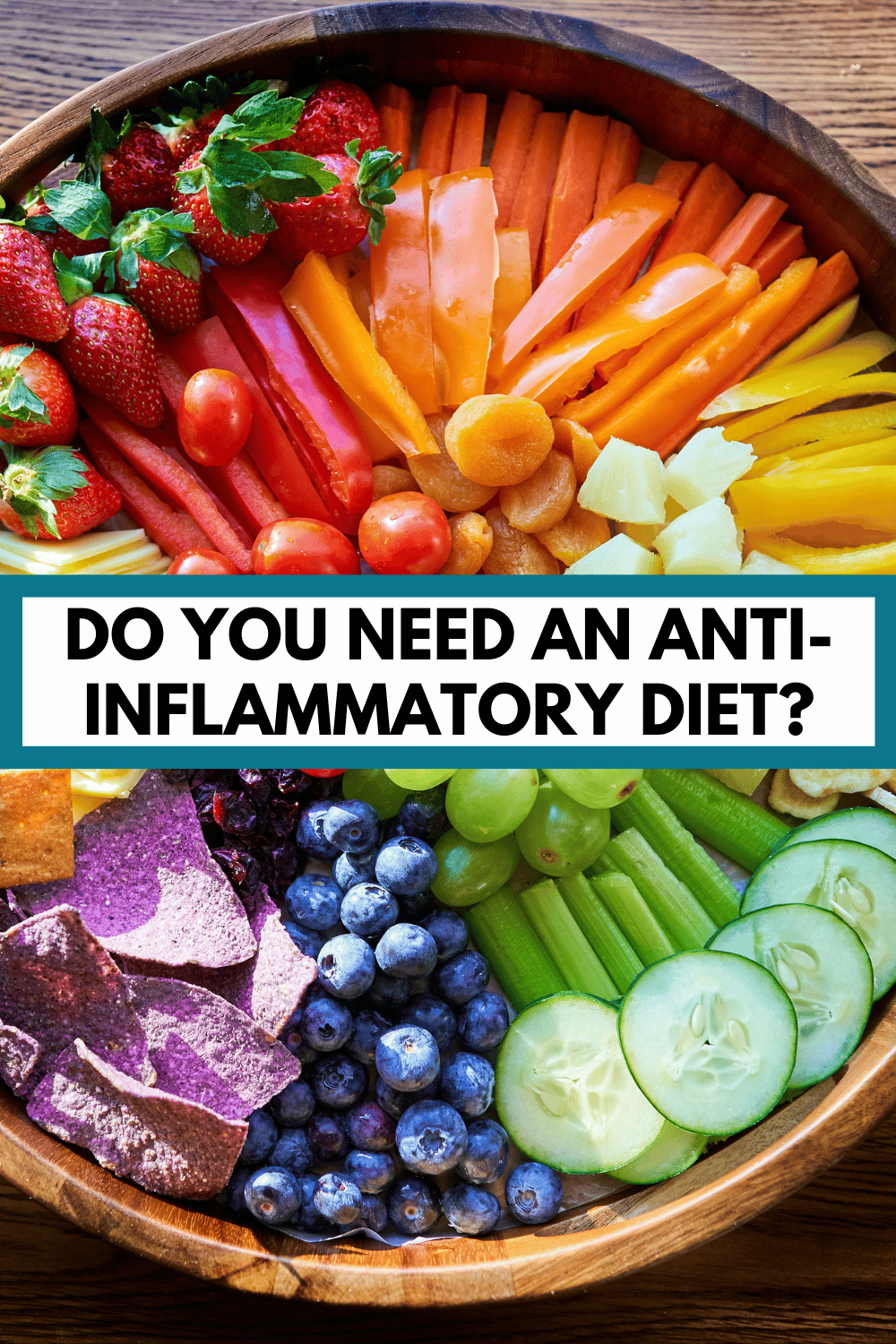
What is Inflammation?
Very generally, inflammation is the immune system’s response to irritation, like a splinter, germs, or psychological stress.
There are two ways inflammation is categorized:
- Acute Inflammation: This inflammatory response is short term, usually less than two weeks, and the body typically goes right back to how it was pre-illness/ injury.
- Chronic Inflammation: This type of inflammation is usually less severe, but ongoing, lasting longer than six weeks. It’s often linked to autoimmune disease, prolonged stress, and doesn’t always end when the injury/illness has healed.
Is Inflammation a Bad Thing?
Inflammation is typically spoken about like it’s a very bad, taboo thing, But in actuality, everyone experiences inflammation, and it can actually sometimes be beneficial!
Inflammation actually helps protect your body, like in cases of acute inflammation.
For example, if you’ve ever had a splinter, did you notice the area around it got red and swollen? This is a good form inflammation! When it gets inflamed like that, helpful white blood cells head to that injured area to prevent infection and promote healing.
How Do You Know if You Have Inflammation?
Wondering how to tell if you have inflammation? Well, remember – everyone has some inflammation, and inflammation can be a good thing! Like when you have a splinter and the area becomes inflamed, which signals to your body the need for healing.
But in terms of general symptoms of chronic inflammation? There can be some subtle signs. Potential symptoms of inflammation include:
- Body pain, arthralgia, myalgia
- Chronic fatigue
- Insomnia
- Depression
- Anxiety
- Mood disorders
- Mood swings
- Gastrointestinal upset
- Constipation
- Diarrhea
- Acid reflux
- Weight changes
- Frequent infections
You might also feel inflamed if you usually eat only a limited number of foods. Our digestive system works best (and we feel best) when we have a wide variety of foods, especially fruits and vegetables.
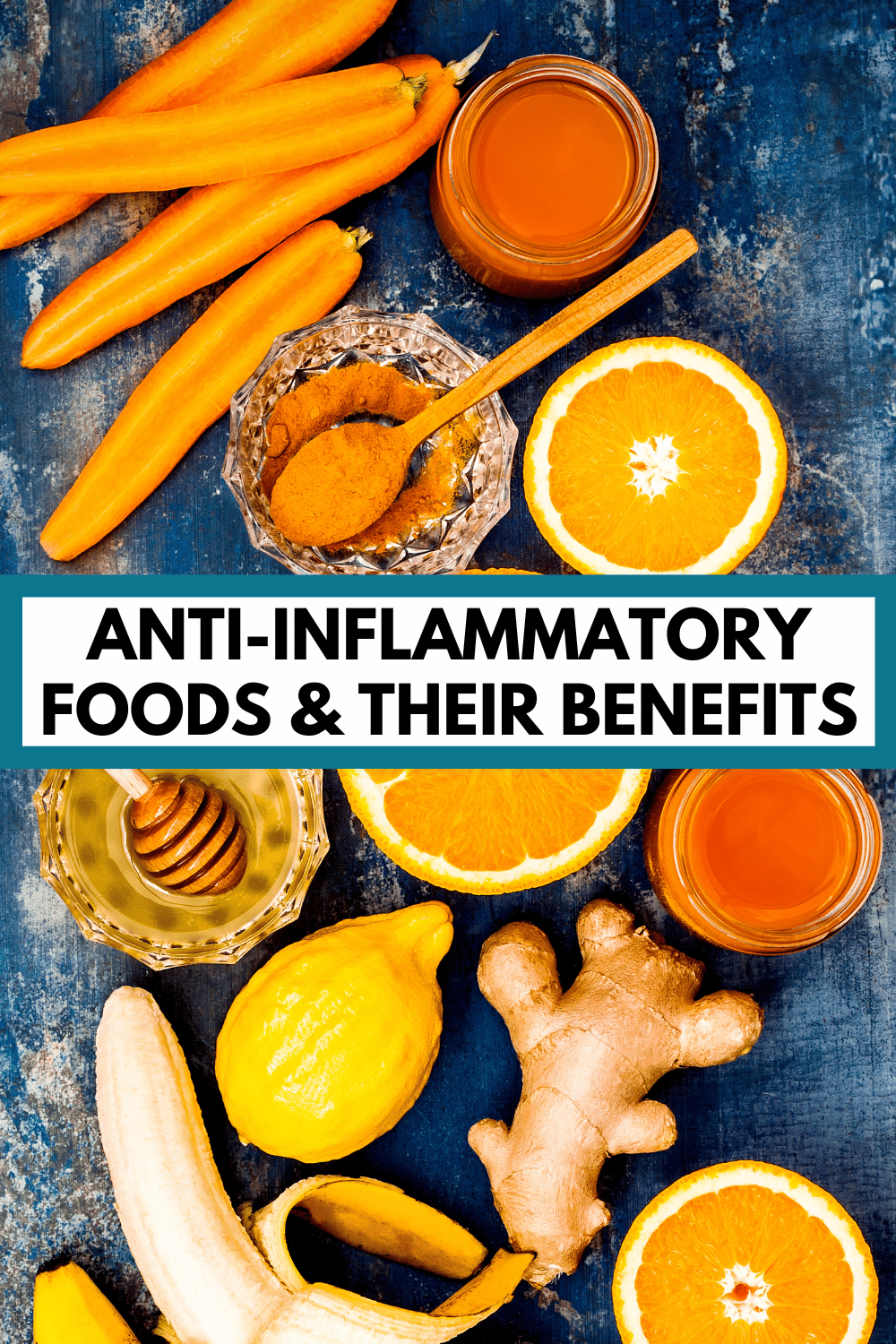
What’s an Anti-Inflammatory Diet?
An anti-inflammatory diet is an eating pattern that focuses on fruits, vegetables, whole grains, omega-3-rich foods, nuts and seeds, and other anti-inflammatory nutrients.
Generally, it’s a diet that emphasizes nutrient-dense foods.
How Do You Know if You Need an Anti-Inflammatory Diet?
Truthfully, everyone would benefit from including anti-inflammatory, nutrient-dense foods in their diet.
If you’re someone who has been consuming predominantly ultra-processed foods or experience a chronic inflammatory condition, you may find eating a more anti-inflammatory diet helps you physically feel better.
Which Foods Cause Inflammation
- Foods you medically need to avoid (like gluten with celiac disease or foods you’re allergic to)
- Processed Meats like hot dogs, bacon, ham, deli meat
- Refined Sugar like table sugar, high fructose corn syrup, and brown sugar.
- Trans Fat which can be found in fried foods and some shelf-stable fats in foods like cookies, shortening, and margarine
- Deep Fried Foods like french fries, fried chicken, chips
- Excess Omega-6 Fats
- Refined Carbohydrates like refined white bread and foods like cookies and muffins.
- Alcohol such as wine, beer, and spirits
Learn more about inflammatory foods and the research behind them in this Inflammatory Foods List (PDF!) article.
What Are Foods That Fight Inflammation
Generally speaking, foods that fight inflammation are going to be your more nutrient-dense foods. Think of food groups like fruits, vegetables, legumes, nuts, seeds, fatty fish, and healthy fats.
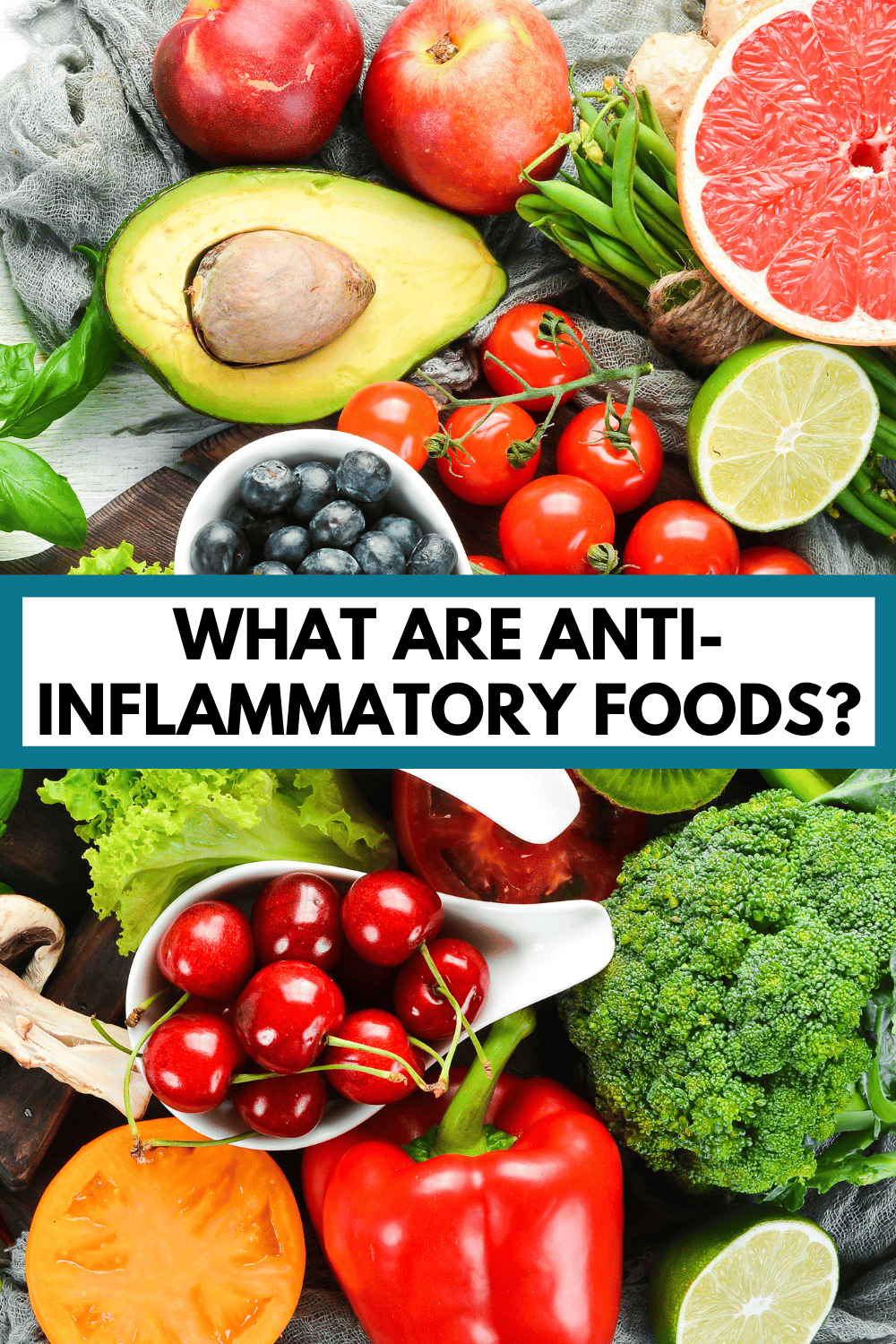
Anti-Inflammatory Foods List
Fruits
All fruit can be anti-inflammatory, but to get max benefits, it’s best to focus on whole fruit sources, and not juice.
- Apples
- Apricots
- Avocados
- Bananas
- Blueberries
- Cherries
- Cranberries
- Grapefruit
- Grapes
- Kiwi
- Lemons
- Limes
- Mandarin oranges
- Mango
- Oranges
- Papaya
- Peaches
- Pear
- Pineapple
- Pomegranate
Vegetables
- Arugula
- Asparagus
- Bell pepper*
- Broccoli
- Brussels sprouts
- Cabbage
- Carrots
- Cauliflower
- Celery
- Cucumbers
- Eggplant*
- Green beans
- Kale
- Leeks
- Mushrooms
- Onion
- Potatoes*
- Spinach
- Summer squash
- Sweet potato
- Swiss chard
- Tomatoes*
- Watercress
- Zucchini
Note that some vegetables, like eggplant, tomatoes, potatoes, and peppers, are part of the nightshade family. Some folks are concerned about nightshades being inflammatory, but there isn’t any evidence to support those claims. In fact, nightshade vegetables (like all vegetables) can be quite nutrient-dense! Check out more about the research on nightshades in my Nightshade Vegetables List article.
Legumes
- Adzuki beans
- Black beans
- Black eyed peas
- Cannellini beans
- Chickpeas
- Edamame*
- Fava beans
- Great Northern beans
- Kidney beans
- Lentils
- Lima beans
- Navy beans
- Pinto beans
- Soybeans*
*Soybeans and edamame are another food that some wellness folks claim to not be healthy, but that’s actually not the case. There are multiple systematic reviews and analyses that support soybean consumption correlating with:
- Improved lipid and glycemic parameters
- Reduced total cholesterol, LDL cholesterol, and triglycerides without significantly impacting “good” HDL cholesterol
- Decreased weight circumference
- May prevent cardiovascular events
- And more!
Nuts & Seeds
Nuts and seeds have fiber, which is converted into anti-inflammatory butyrate in the gut. They’re also loaded with nutrients that play a role or have anti-inflammatory properties, like vitamin E.
- Almonds
- Brazil Nuts
- Cashews
- Chia seeds
- Flax seeds
- Hazelnuts
- Hemp hearts
- Macadamia nuts
- Peanuts*
- Pecans
- Pistachios
- Pumpkin seeds
- Sesame seeds
- Walnuts
*Peanuts are a nut that I see get demonized in some wellness communities, but there’s no evidence-based reason for this. In fact, research suggests consuming peanuts and all nuts is actually correlated with lower biomarkers of systemic inflammation in the body.
Fatty Fish
Fatty fish possess high amounts of long-chain omega-3 fatty acids, which have significant anti-inflammatory effects.
- Anchovies
- Mackerel
- Salmon
- Sardines
- Trout
- Tuna
Healthy Fats
- Avocados
- Avocado oil
- Nuts
- Seeds
- Olives
- Extra virgin olive oil
Whole Grains
Whole grains contain brain, which is the fiber-rich component of whole grains (that’s stripped away during processing into refined white flour). Fiber gets converted into butyrate by gut bacteria, which is anti-inflammatory. Many of the vitamins, minerals, and phytonutrients found in whole grains are also helpful in decreasing inflammation.
- Barley
- Brown rice
- Buckwheat
- Farro
- Millet
- Oats
- Quinoa
- Sorghum
- Whole rye
- Whole wheat
Herbs, Spices, & Miscellaneous
- Allspice
- Black pepper
- Cayenne
- Cloves
- Cocoa powder
- Coriander
- Cinnamon
- Cumin
- Dill
- Garlic
- Ginger
- Fennel
- Marjoram
- Mint
- Parsley
- Oregano
- Rosemary
- Saffron
- Sage
- Tarragon
- Turmeric
Drinks
- Black tea
- Coffee
- Green tea
- Water
Anti-Inflammatory Foods List PDF
>>Click here to download your Anti-Inflammatory Foods List PDF<<
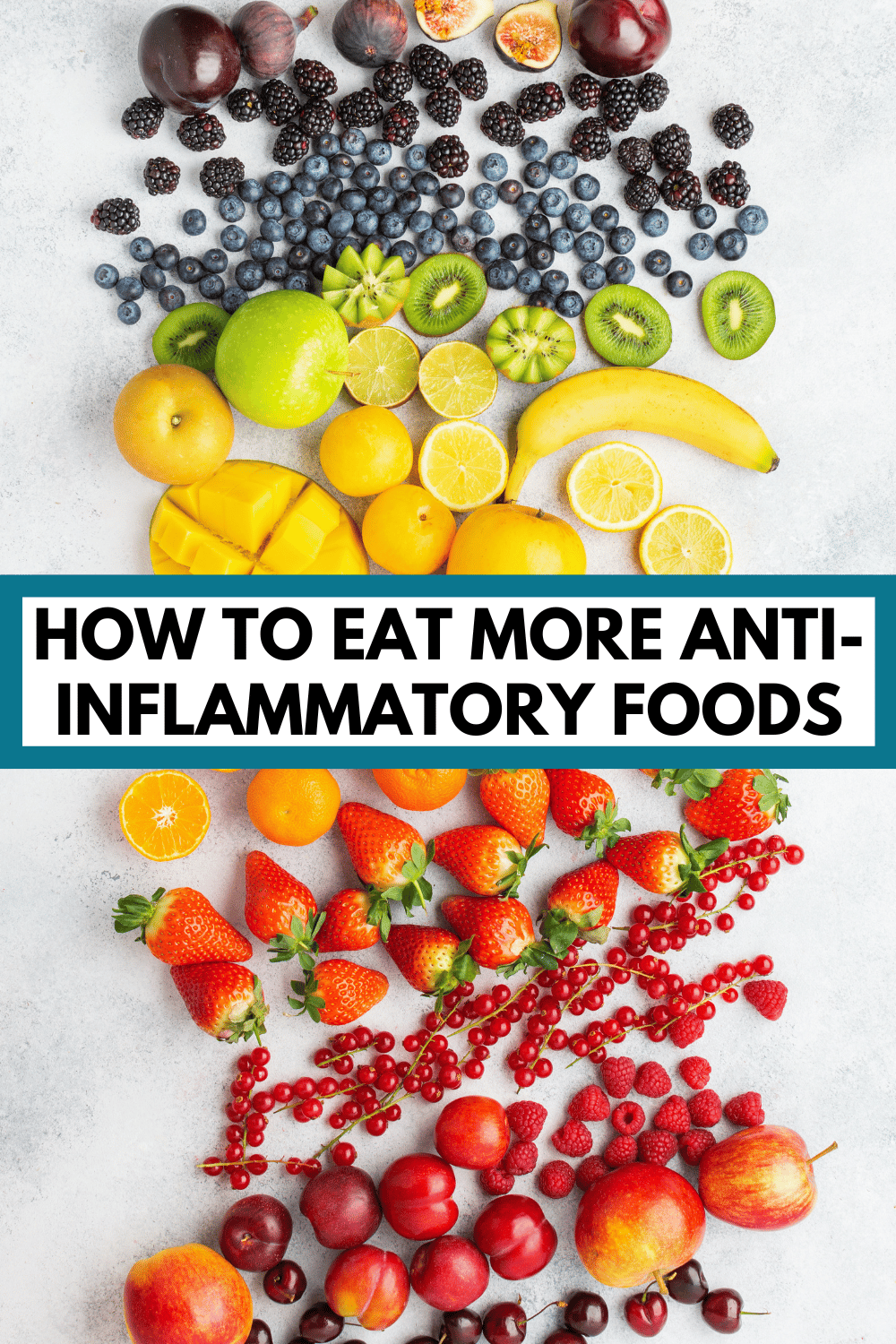
Practical Tips for Incorporating More Anti-Inflammatory Foods Into Your Diet
Okay, so you’ve got this anti-inflammatory foods list…now what? Here are a few ideas for how to realistically include more anti-inflammatory foods into your diet:
- Focus on addition, not subtraction. Instead of demonizing foods that are inflammatory or less nutrient-dense (which research supports can still be included in moderation), focus on adding anti-inflammatory foods into your snacks and meals.
- Zoom out. Instead of trying to make every food you eat an anti-inflammatory food, try including more foods from this list throughout your overall day and week. It’s your overall eating pattern that matters most, not each isolated food.
- Spice up your eats. Take your existing snacks and meals and try incorporating more anti-inflammatory herbs, spices, and seasonings. Like turmeric and black pepper to grains, herbs to salads, and cocoa powder to smoothies and oats.
- Make some simple swaps. Experiment with trying simple swaps, like switching to extra virgin olive oil for your primary oil or using 100% whole wheat bread or pasta instead of refined white bread.
- Start small. If you mostly eat meat and chicken now, try swapping just one meal a week for fish or legumes and go from there.
- Add color. Fruits and vegetables are a big part of an anti-inflammatory diet, and by adding some colorful product to your plate you’re adding more anti-inflammatory nutrients.
Anti-Inflammatory Recipes to Enjoy
- Mango Corn Salsa
- Mediterranean Cucumber Salad
- Chocolate Zucchini Smoothie
- Spiced Turmeric Overnight Oats
- Pesto Crusted Salmon
Final Thoughts From This Anti-Inflammatory Foods List
Inflammation is a real thing (although not always a bad thing!) and anti-inflammatory foods like fruits, vegetables, whole grains, herbs, spices, fatty fish, healthy fats, and more can help combat various signs and symptoms of inflammation. Don’t forget to download your anti-inflammatory foods list PDF!

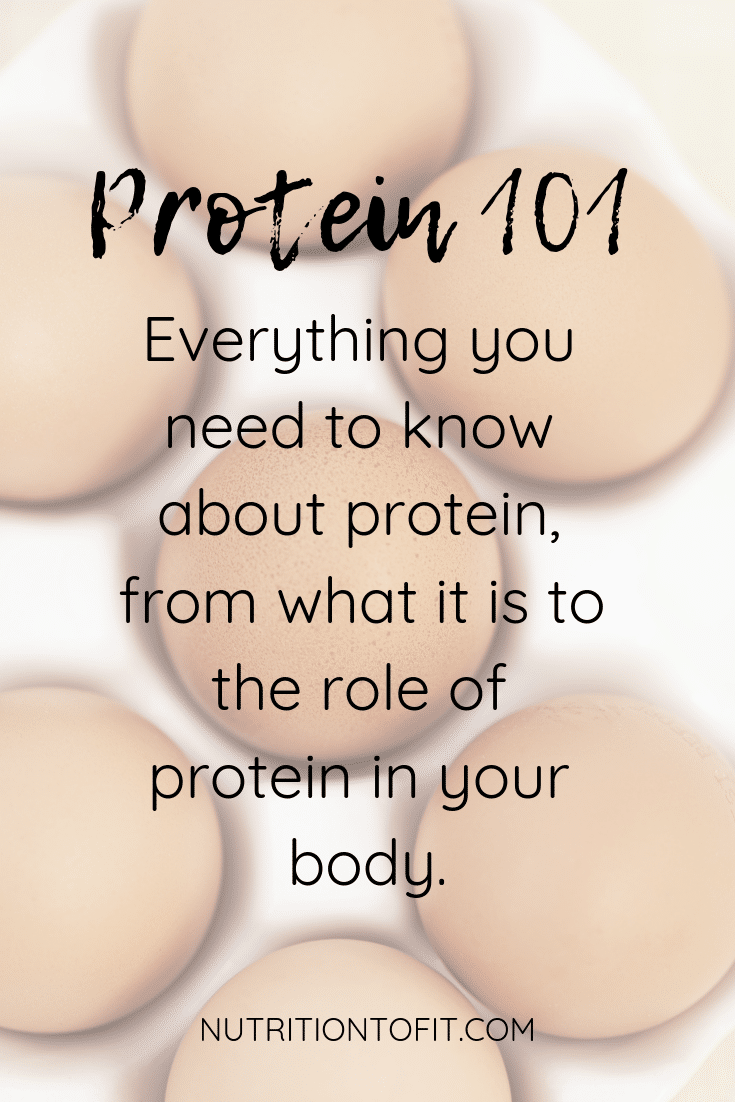
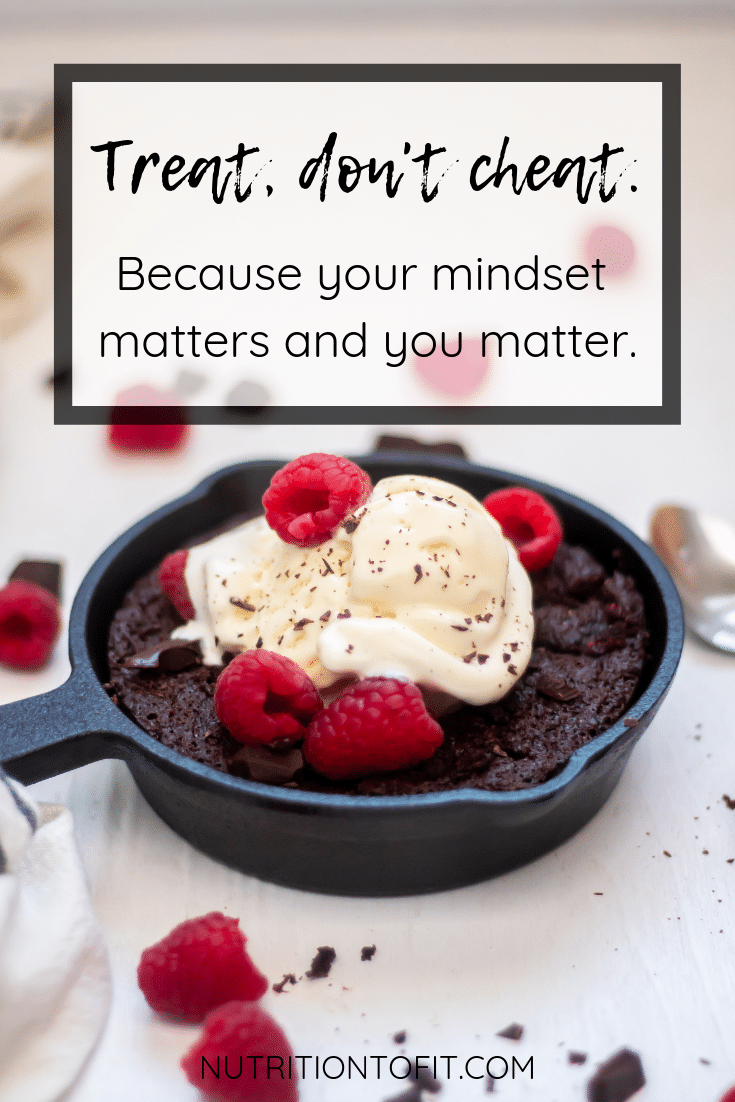


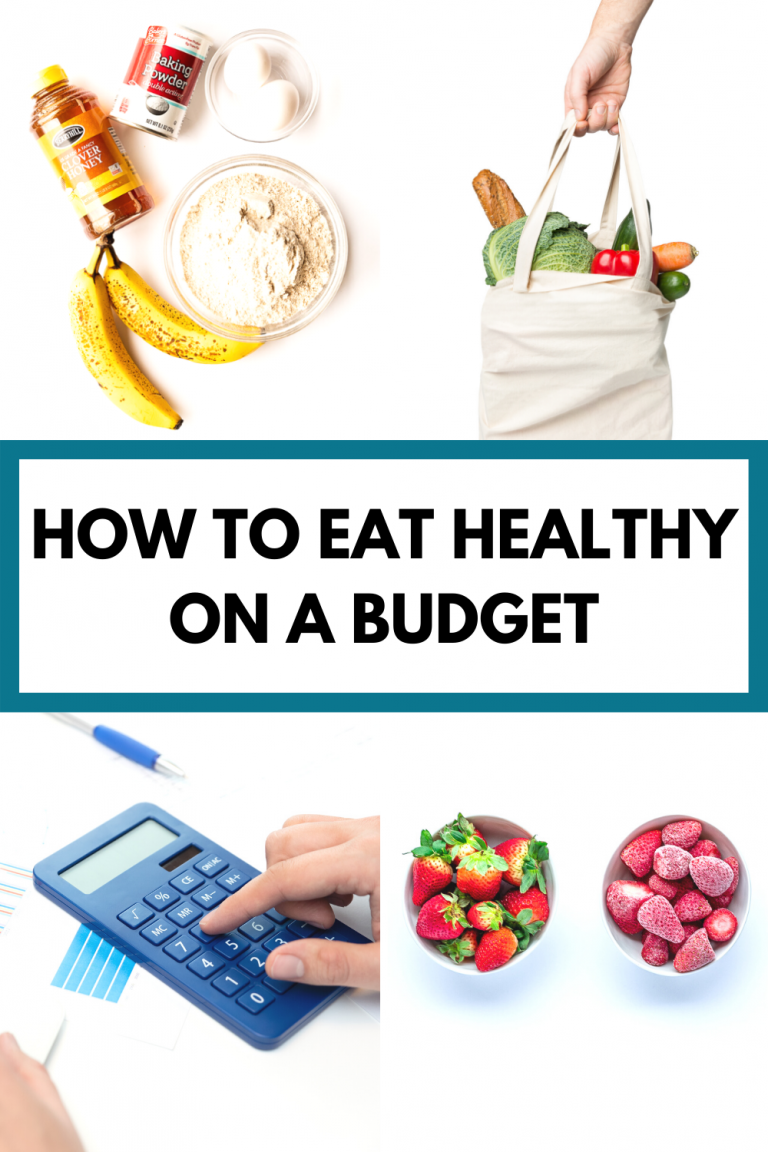
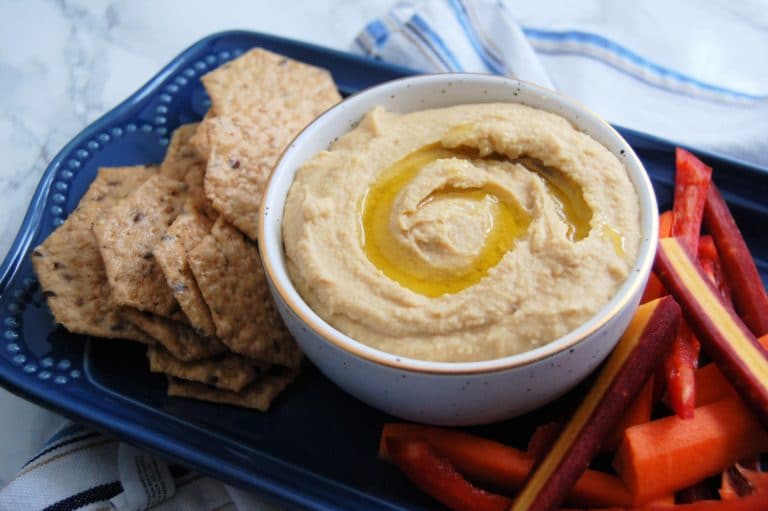
cannot find the pdf to download… just pissed me off
Allow me to copy and paste the link from the post for you: https://view.flodesk.com/pages/630ae76f2812b898e99a8f40. And just a head’s up, the PDF is delivered via email, so if having to enter an email is going to piss you off, too, save yourself further frustration and don’t worry about it. All the information in the PDF is the same as in this article, anyway.
I hope your day gets better. May I suggest getting offline for a bit and perhaps going for a walk outside and getting some fresh air? That always helps me if I find myself getting unnecessarily worked up over small things. 😉
This is so nice to have. Thank you! Made my day 🌻
You’re welcome! Thank you so much for your kind comment, it’s appreciated! I hope you have a nice day 🙂